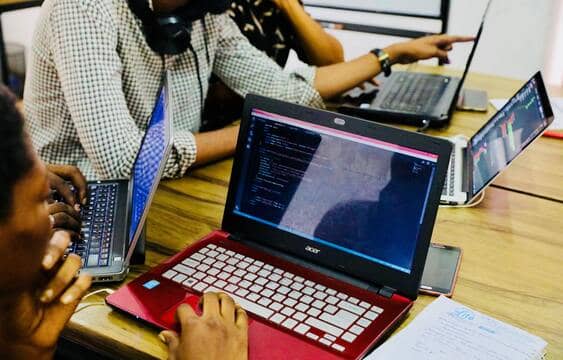The data analytics field has flourished over the years. Industries are working towards embracing the Big Data system in their operations. If you’re working towards becoming a data analyst, you have a bright future ahead. However, you do have to go through the interview process in order to land a job and you’ll need to prepare for this process. There are specific and critical interview questions that you’ll likely encounter, and we’ve compiled a short list to help you begin that preparation. The article will present the top six data analyst interview questions and a guide on how to answer them effectively.
Top Six Data Analyst Interview Questions

1. What are some of the requirements for one to become a data analyst?
This is a popular question that examines whether you understand what it takes to become a data analyst. The question focuses on the skills, knowledge and certification that’s required for this career field. You need to be precise when answering this question, and you should not leave anything out.
To be successful in data analytics, you need strong analytical skills. You should touch upon the different data analytical tools that data analysts should be familiar with such as SPSS, Excel and SAS. You might also want to explain why each of those tools are important and how you can apply them in your work. Data Analysts also need to be familiar with some programming languages such as Java, SQL and Python so be sure to mention those or any other programming languages that you feel apply to the job your interviewing for. Be sure you familiarize yourself with the job requirements prior to the interview so you’re able to keep your answer to this question relevant to the job
Additionally, data analysts need to have technical knowledge in various data fields. The main areas are segmentation techniques, database design and data mining. Familiarity with Big Data is a necessity today. You need to be able to analyze, organize and collect Big Data conveniently.
2. Can you highlight some of the duties and responsibilities of a data analyst?
For this question the interviewer wants to be sure that you know what a data analyst does. Data collection, analysis, and interpretation are key responsibilities of almost any data analyst position. Data analysts use various statistical and analytical techniques to analyze data, which can be both qualitative and quantitative, mainly for reporting or troubleshooting purposes and more. The duties and responsibilities of a data analyst typically depend on the industry they work in. Therefore, your answer should be tailored to the industry of the job you’re applying to.
3. What is data cleansing, and how does it work?
This is a popular question, and you should expect it in any data analyst interview. Data cleansing is the process of identifying and eradicating errors from data. The process is carried out to improve the quality of data.
Data cleansing is done by first grouping data according to their characteristics. This step is followed by data breaking, which entails breaking extensive data into minor datasets. The data is then analyzing statistically per column. Utility scripts are later created, which facilitates cleaning tasks. Data tracking is also part of data cleansing so be sure to mention that in your response.
4. What are some of the critical steps involved in solving any data problem?
Data analytics solutions are a way to help a business improve their decision-making skills, grow revenue, and boost customer satisfaction. There are many steps that you can take when solving a data analytics problem. They all have different levels of difficulty and can vary greatly depending on the type of company that is using it. The following steps are common when solving any data problem:
- define the problem
- create an action plan – this would be used to solve the problem at hand
- review the results of the process – this may include checking for errors or outliers in the data set
- data validation
- implementation and tracking of data sets
5. What are some of the challenges data analysts encounter on any given day?
An interviewer may ask this question to evaluate whether or not you understand common challenges or problems encountered by data analysts.
One common challenge is misspellings. Misspelling any character in a data set can jeopardize the entire analytics project. Duplicate entry is also a common problem that might need to be addressed during a project. Other issues include failure to identify overlapping data, illegal values, missing values and changing value representation.
6. What are some of the best data analysis tools?
The question examines whether you are familiar with data analysis tools. Some of the popular tools may include the following:
•NodeXL
•Tableau
•Google fusion tables
•Open Refine
•KNIME
•Solver
•Google search operator
Conclusion
One of the most important steps in preparing for a data analyst interview is to have a clear understanding of what kind of questions might be asked. The above questions represent a small fraction of these question. Be sure to read the job description in its entirety as most descriptions provide a clear indication of which questions you might expect during your interview.

